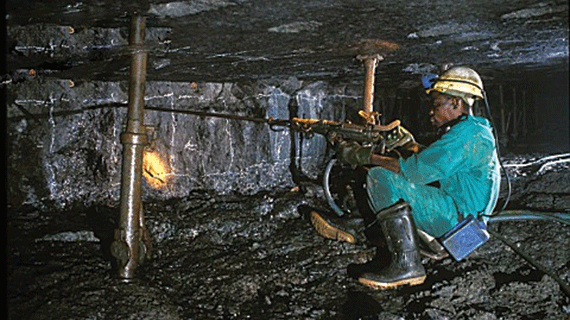
JOHANNESBURG — The Impala Platinum (Implats) share price has dropped 10% over the past week because of the furore over threatened beneficiation requirements in Zimbabwe, but the situation may not be as dire as the headlines suggest.
Implats corporate relations manager Alice Lourens said no deadline on beneficiation had been imposed by the Zimbabwe government.
“I don’t know where this story is coming from. We have received a nicely worded invitation to participate in discussions around beneficiation.”
An authoritative platinum industry source, speaking on condition of anonymity, disagrees, saying that political pressure is being applied, but the situation is fluid with the Zimbabwean government as much over a barrel as Implats may be. The reason is the desperate financial straits the Zimbabwean economy is in yet again.
There are also harsh financial, economic and technical realities in refining platinum group metals that Zimbabwe’s politicians cannot simply remove by decree.
The Zimbabwe government is desperate for cash, which it is trying to raise through a host of new, punitive tax measures such as the proposed 15% export levy on unprocessed platinum.
It is also under pressure to show economic growth and job creation following last year’s elections.
For Implats — the largest platinum producer in Zimbabwe through 87% subsidiary Zimplats and its 50% stake in Mimosa Platinum — its Zimbabwean operations have repeatedly shown the group’s highest profit margins.
- Chamisa under fire over US$120K donation
- Mavhunga puts DeMbare into Chibuku quarterfinals
- Pension funds bet on Cabora Bassa oilfields
- Councils defy govt fire tender directive
Keep Reading
The other 50% in Mimosa is owned by Aquarius Platinum, while Anglo American Platinum (Amplats) operates the Unki Mine in the country.
The Zimbabwean platinum mines are low-cost, shallow, mechanised operations staffed by small, but skilled workforces. This compares with Implats’ deep, high-cost mines around Rustenburg in South Africa, staffed by huge numbers of unskilled and increasingly militant workers.
The Zimbabwe platinum output shipped to Implats’ refineries in South Africa for beneficiation is important for the economic efficiency of those refineries. Implats wants to expand in Zimbabwe because it does not control the huge resources that are owned by Amplats in South Africa.
“Zimplats represents our blue sky potential,” Lourens said.
The industry source comments: “I think Amplats could walk away from Zimbabwe if it had to, but I do not think that Implats could.” JPMorgan Cazenove analysts Allan Cooke and Steve Shepherd said: “We find it somewhat difficult to sort fact from ‘threat’ in the context of regulatory changes. This outlook must pose a severe dilemma for Implats since . . . its holdings in Zimbabwe represent the group’s only attractive organic long-term growth option.










